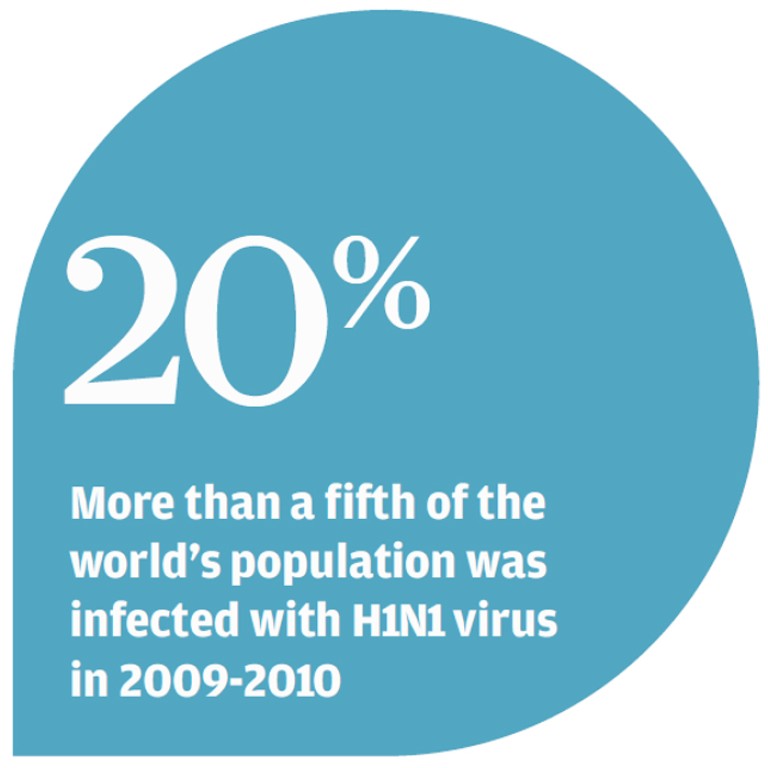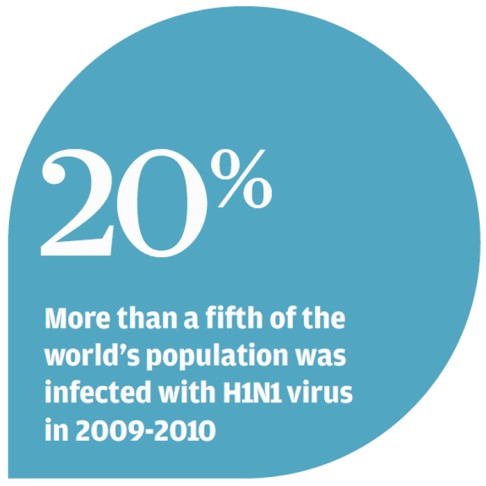
Swine flu vaccine carries small risk of rare nervous disorder, research finds
Vaccination in the United States against H1N1, or swine flu, which swept the world in 2009 and 2010, carried a small but tolerable risk of Guillain-Barre syndrome, a disorder that can cause muscle weakness or temporary paralysis, a new study said.
Vaccination in the United States against H1N1, or swine flu, which swept the world in 2009 and 2010, carried a small but tolerable risk of Guillain-Barre syndrome, a disorder that can cause muscle weakness or temporary paralysis, a new study said.

Compared to normal times, incidence amounted to about 1.6 extra cases per million people vaccinated, which means the benefit of the jab "greatly outweighed" the risks, they said. The modest incidence was probably similar to cases of Guillain-Barre that arise from annual vaccination for seasonal flu, they said.
The National Vaccine Programme Office in Washington completed the study, published in . It said 61 million cases of H1N1 were recorded in the US in the pandemic, leading to 274,000 hospital admissions and 12,470 deaths. It killed 284,500 worldwide in 2009-10.
Guillain-Barre occurs when the body starts to attack nerves involved in movement and sometimes other functions .
It grabbed headlines in 1976, when a campaign to vaccinate the US population against a new flu strain was stalled by claims - later contested - that the jab led to a rise in cases of this otherwise rare auto-immune disorder.
